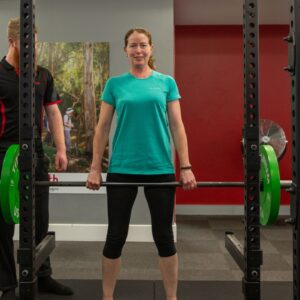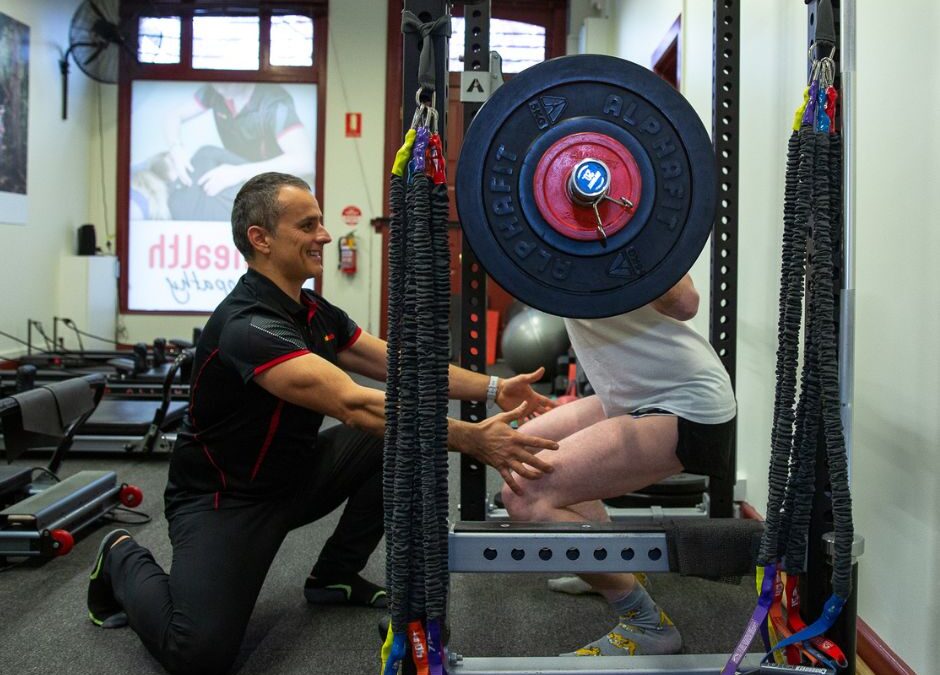What Is Progressive Overload and Why Is It Important?
Progressive Overload
Progressive overload is a term that is commonly used with strength training. It is when increases to the training session or workout are made to increase the difficulty or intensity. It makes it harder! This is done gradually overtime to make sure the body is ready for the increase in intensity. It is important to be done slowly to reduce the risk of injuries. If we go too hard too soon and the body is not ready for it, we risk injuries such as muscle, bone, ligament or tendon issues along with experiencing excessive fatigue or performance declines.
Why Is It Important?
Whilst exercise can always feel hard and like it never gets easier our bodies do adjust and get used to it. In the first 6-7 weeks we start to see neural changes and our muscles start to switch on and work better. Once the muscles start to switch on and do their job then we can work towards improving our muscle strength and that happens in about weeks 7-13. Sometimes we can see some strength changes earlier and this is often just because the muscle starts to work. If we continue to do the same workout with the same weights, reps, sets, duration, frequency and intensity our bodies will adapt and get used to the workout which will then see our results such as strength increases start to plateau. This is where progressive overload becomes important. If our bodies adapt and our gains such as strength, endurance or even speed plateaus it doesn’t mean that that’s the strongest, fittest or fastest we can get it just means we are used to that load we are placing on our body. If we increase the load by increasing the weight, sets, reps, duration, frequency or intensity then we are progressively overloading, increasing the stress and our bodies will work towards this new workout load to continue to see improvements such as getting stronger, have more endurance or even walk or run faster.
Ways to Progressive Overload
There are many ways to progressively overload. We can increase a weight we are lifting, increase the amount of reps (how many times we lift something in i.e. 10 times in one bout) increase the sets (how many times we lift that weight i.e. 3 sets) If we see 10 reps by 3 sets, it means we are going to lift a weight 10 times and then repeat those ten 3 times. We can also increase the time of our workout to assist with endurance or the frequency, how often in a week we will do that workout. We can also try to walk or run that bit faster to increase out heart rate or even add a hill to our walk or run.
When we are progressively overload as mentioned above, we want to do it gradually. We generally pick one component to increase at a time. We will usually increase the reps when looking to gain muscle strength, build them up and then when we feel able, we will start to increase the sets. Once we are happy and able to lift the required reps and sets then we can increase the weight we are lifting. As we increase the weight, we will often decrease the reps then gradually build them back up again to repeat the cycle.
As we do progressively overload our workouts very rarely feel easier, but we do get stronger!
Do you have any questions?
- Call us on (03) 9857 0644 or (07) 3505 1494 (Paddington)
- Email us at admin@mdhealth.com.au
- Check out our other blog posts here
Our clinical staff would be happy to have chat if you have any questions.
Take the first step to a healthier you!
Would you prefer for someone to contact you regarding booking your Initial Physiotherapy appointment, Initial Exercise Physiology, Initial Osteopathy session or FREE Full Body Assessment*?
Or do you have any other enquiry about our services at MD Health?
Please fill in this form and someone from MD Health will be in touch with you soon.
Alternatively please call us on 03 9857 0644 (Kew East), 03 9842 6696 (Templestowe), 03 8683 9442 (Carlton North) or 07 3505 1494 (Paddington) to book now!
*Please note only the Full Body Assessment is a FREE service. The Full Body Assessment is for new clients at MD Health or returning clients who haven’t been in for 6 months or longer who intend to particpiate in our 13 Week Clinical Pilates Program**.
For all new clients who wish to come in for a one-off, casual or adhoc basis for Physiotherapy or Exercise Physiology the Initial Physiotherapy or Initial Exercise Physiology appointment is a paid service.
** The 13 Week Clinical Pilates Program at MD Health is not a lock in contract and you are not required to attend for the full 13 weeks if you do not wish.
This site is protected by reCAPTCHA and the Google Privacy Policy and Terms of Service apply.




